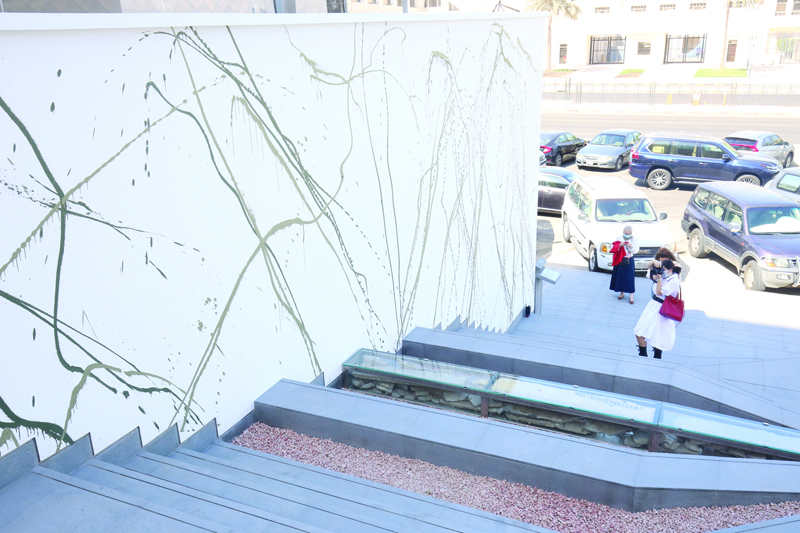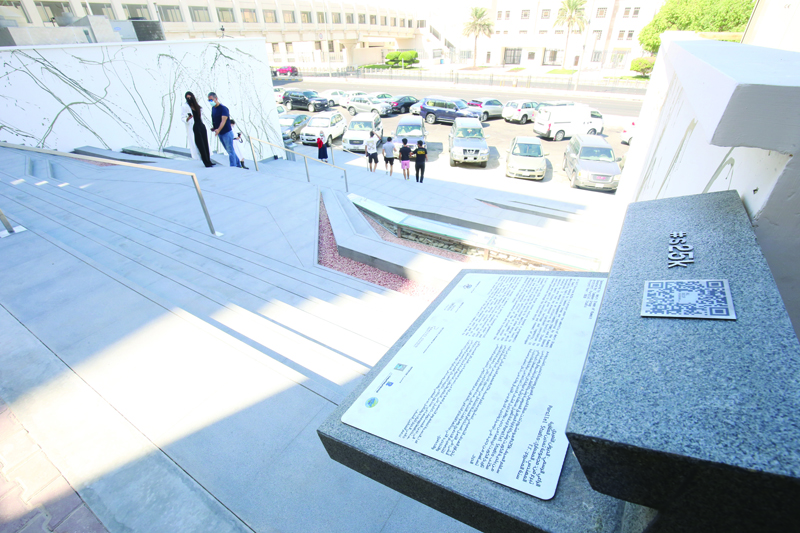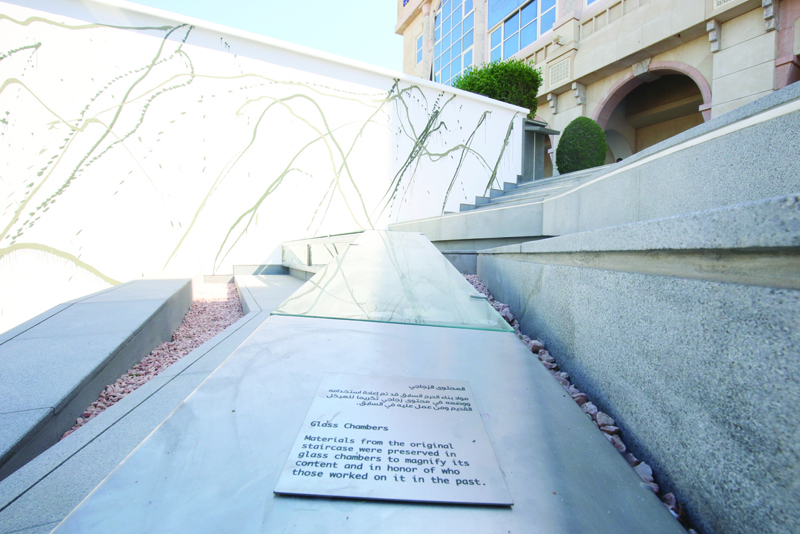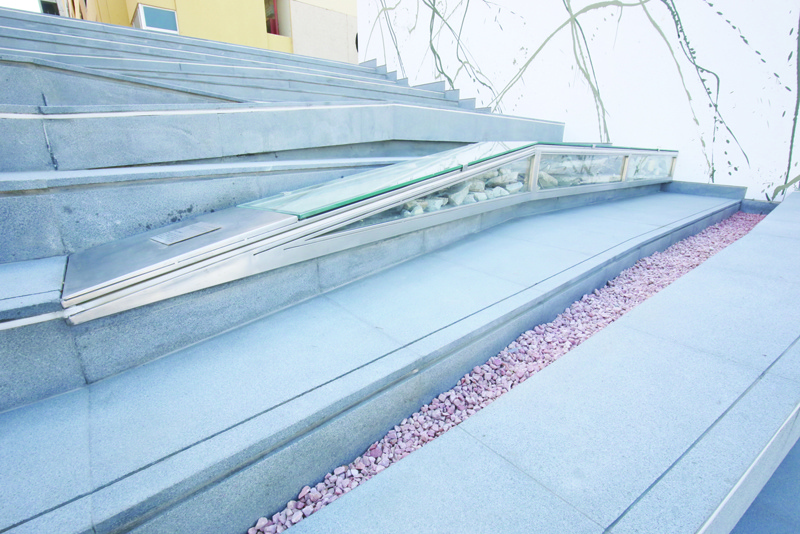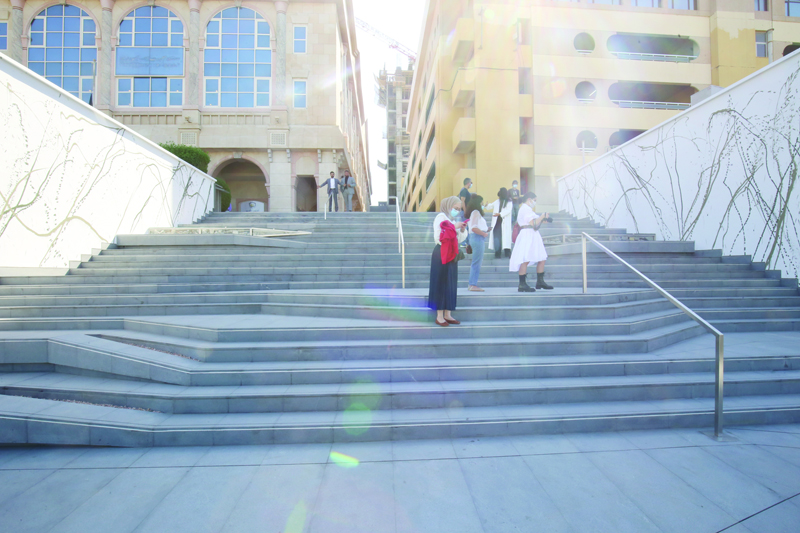
By Nawara Fattahova
KUWAIT: The public and private sectors cooperated to renovate an important location in Kuwait City - the Al-Seif Staircase #s25k project that opened yesterday opposite Seif Palace. This project was executed under the umbrella of the Amiri Diwan, sponsored by Tamdeen Group and supported by the Municipality, Public Utilities Management Company (PUMC) and Alghanim International.
It emerged as an initiative by Parallel Studio to refurbish the area that has witnessed significant contributions to Kuwait's history given its heritage and ingenuity. It is contributing once again to the consolidation and renewal of dialogue between generations through the staircase design.
Al-Seif Staircase #s25k design intent evolves beyond a programmatic statement. It seeks to highlight the main concept of urban design, which is to draw attention to this particular area as a symbol of the rehabilitation and renovation efforts of the private sector in collaboration with the governmental sector, and to strengthen the advanced social and urban position.
As for the design concept, it weaves a series of faceted geometrical characters that cascade between levels as evidence of order and balance. Materials from the original staircase were preserved in glass casings to magnify their contents, paying tribute to the old structure. The seating on the sides of the staircase serves as a resting ground to contemplate the marriage between the past and the present. The graffiti (spirit of the past) will remain as it is to support youth artists.
MP Ahmad Al-Fadhel said this staircase connects the past with the present by preserving the authenticity of the place and adding a touch of beauty. "The executing team used the materials of the original staircase in their project. I came today to encourage these creative works, as we are suffering from ugly views in Kuwait of various buildings, streets and even greenery. So such projects add beauty to our country, having the effect of makeup to improve our capital," he explained.
"I think that beauty of the country is important in the present time. Most of the attractions that people seek in other countries are available in Kuwait; even the weather is very pleasant in winter. We feel relaxed when we walk on the streets of Europe due to the symmetry of their buildings, streets, colors, heights and so on. The beauty of this symmetry affects our psyche, and ugly public places will definitely make us depressed," said Fadhel.
"I hope that other institutions will do the same with other projects, and will consider quality rather than the cost. Usually, cheaper is uglier, but the government has the financial resources to buy the best and the most beautiful. We participated in applying this in Mubarakiya by preserving the heritage along with developing new cafes and stores. It's important to support such initiatives," stated Fadhel.
Elevation Burger is the sponsor of the artwork at this project. "Five years ago, we launched our new branch at Seif. It was a historical building from 1962 and we tried to develop it and preserve its heritage. It is located at a strategic location opposite Seif Palace, so we aimed to develop the surrounding area of our restaurant, which includes this staircase. We tried to beautify it with greenery and outdoor seating to suit its geographical and historical importance," said Abdulaziz Al-Treiji, CEO of Tabco Food, operator of Elevation Burger.
"We always try to add value to the place where we work. When the architect of this place approached us to join this project, we didn't hesitate and offered our support. We believe that this project is an added value to our community," he added.
Dr Abdulaziz Al-Suqoubi, a teacher at the College of Architecture at Kuwait University, noted that the symbolic importance of this project is more important than its size. "I'm proud that my colleague from the college - Kuwaiti architect Mai A-Bseiri - executed this important project, where they brought together the public and the private sector," he said.
"This is not a regular project, but a rehabilitation of old stairs, and as a mark of appreciation, the working team preserved some old elements of the staircase and made them a part of the new project. This reflects the importance of urban heritage for young Kuwaitis. So they built without destroying old heritage. And this is what we teach our students, that the past and the heritage should be respected and protected," stressed Suqoubi.
.jpg)

